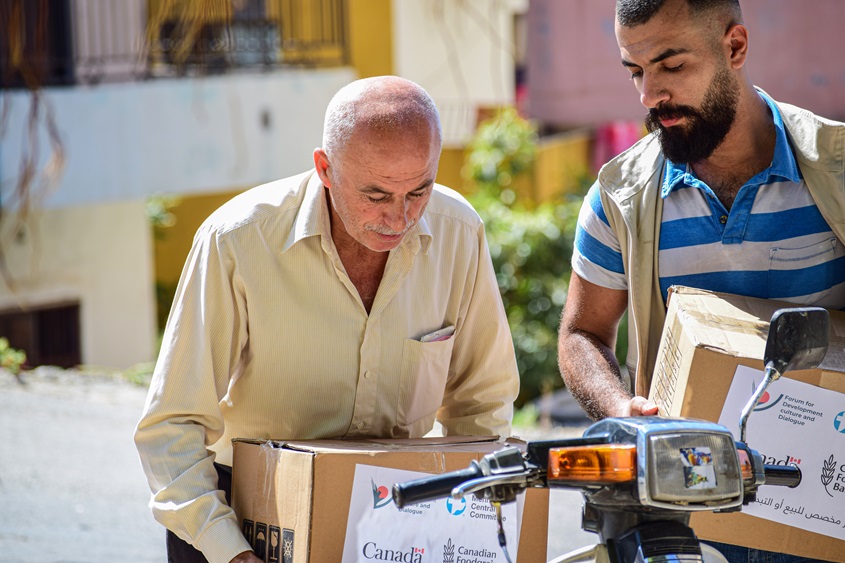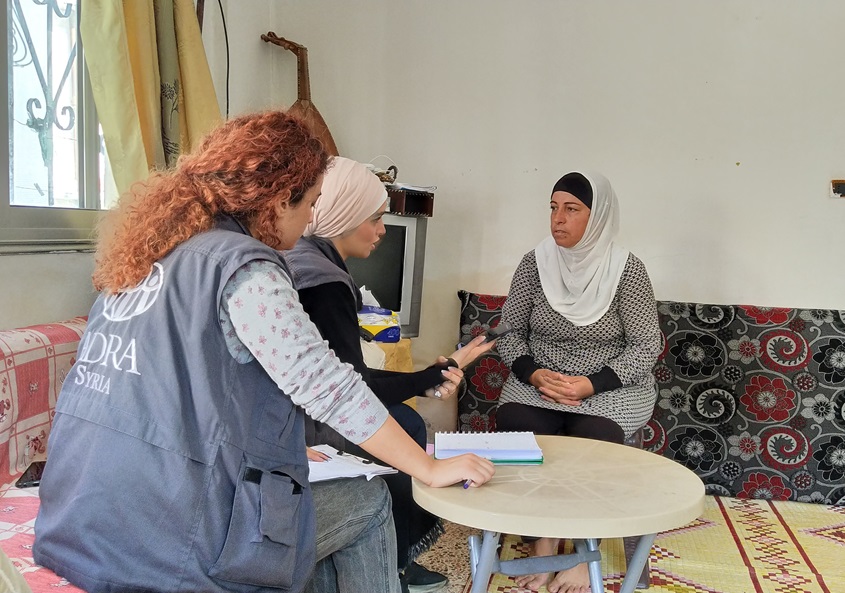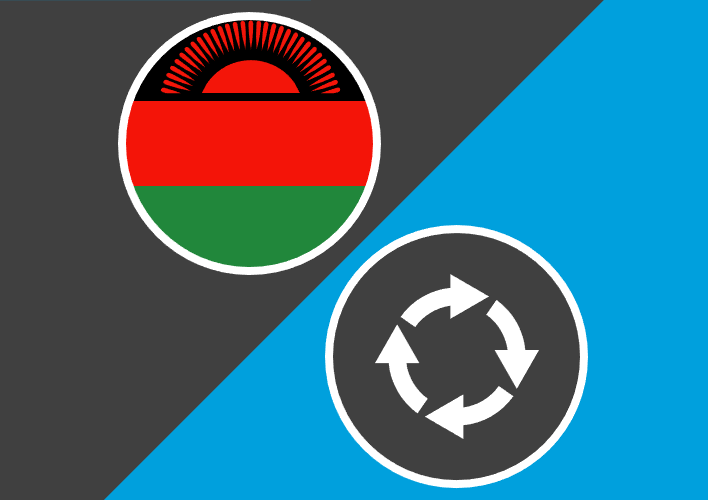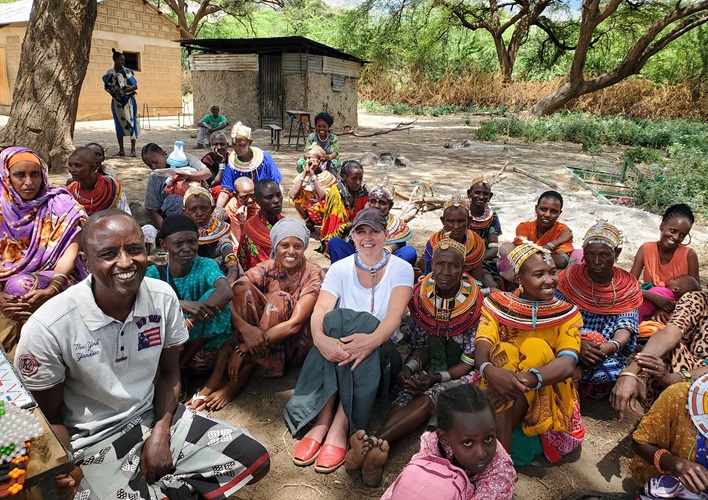In February 2023, two significant earthquakes and thousands of aftershocks killed over 50,000 people in Türkiye and Syria, compounding one of the most significant current global humanitarian crises – the ongoing crisis in Syria.
Less than a day after the first major quake, the Humanitarian Coalition launched an appeal. The Government of Canada contributed $10 million to match donations given by generous Canadians to the Coalition or any of its twelve members, including the Foodgrains Bank.
As a result, Foodgrains Bank members Mennonite Central Committee Canada and ADRA Canada were able to support the women, men, and children, who were faced with the devastating effects of the earthquakes, on top of living in the midst of ongoing conflict.

In Tartous, Syria, volunteers with FDCD assist program participants during a distribution of food parcels in late September. (Photo: FDCD/Mohammad Said)
The earthquakes complicated an already challenging food security situation in Syria, where families like Basima’s* in the war-torn city of Aleppo struggled to adequately provide food for themselves. For three months after the earthquake hit, 39-year-old Basima and her family had nowhere to call home.
“The first days were between parks and church shelters. We wanted to go home but we couldn’t. Three months filled with fear… there was not the slightest feeling of security that would enable us to return.”
When they eventually found the courage to return, they found their house cracked and crumbling.
Basima was unable to work after suffering a stroke, and her husband did his best to provide by working as a labourer in a clothing printing workshop. But everyday the family struggled to meet their basic needs, including food, water, and school supplies.
“The situation was difficult,” says Basima. “We didn’t even feel full several times. We were offered some sandwiches and cooked meals, but they were few and not enough. I often had to hide my share for my children.”
Shortly afterwards, stress and anxiety took its toll on Basima’s mother, who passed away from complications related to her diabetes, exacerbated by her heightened fear of continuous aftershocks. Now the family was not only dealing with trauma from the memories of the earthquakes, but the grief of losing Basima’s mother as well.
Through the support of Forum for Development, Culture and Dialogue (FDCD), local partner of MCC Canada, 7,075 people in Aleppo, Latakia, and Tartous, were provided with a monthly food basket to help them get through the hardship after the earthquake.

Ghada, pictured right, was living with her daughter and son-in-law in Latakia, Syria. The earthquake destroyed their home, forcing them to move to temporary housing. “Now that we have lost our residence in the earthquake and are obligated to pay a rent, things have only deteriorated for us… my daughter and her husband have jobs, but their income is hardly sufficient for us all.” They were grateful to learn they could access food baskets through ADRA Syria, and told a representative that the family’s diet had since improved: “There were times when we faced a scarcity of food, particularly bread, but now we are not faced with this issue anymore.” (Photo: ADRA Syria)
Basima and her family received the monthly food basket, which included rice, pasta, lentils, oil, sugar, tea, tomato paste, halva and canned meat.
While the family still needs comprehensive support, including psychological care and healthcare, this provided a small glimpse of hope and strength to persevere through their challenges.
“We hope that you will continue to help us,” says Basima, “because this is a great support in our situation and gives us hope in this darkness that surrounds us.”
*Pseudonym
This story was originally published in the 2024 Spring edition of Breaking Bread.




